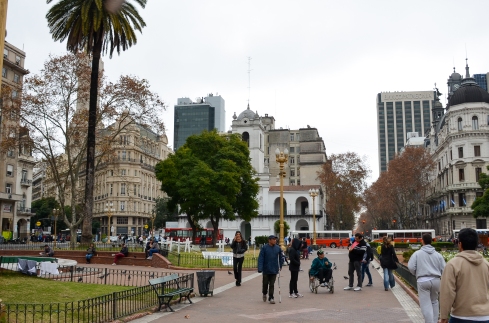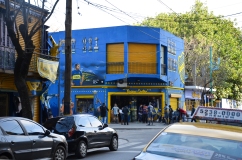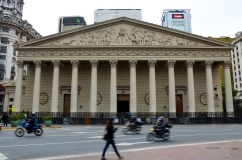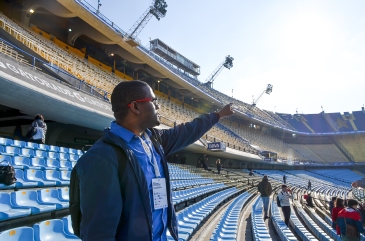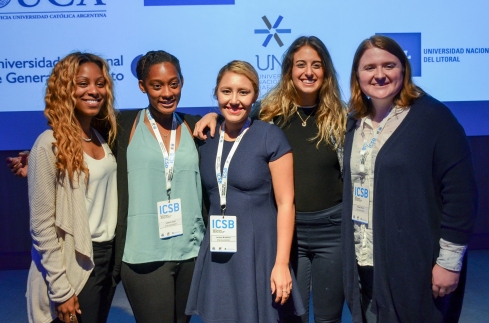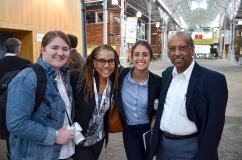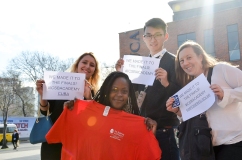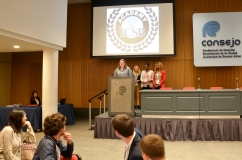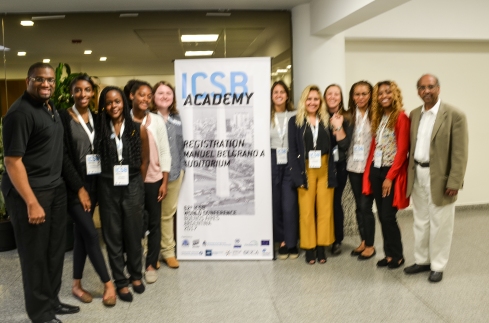Written
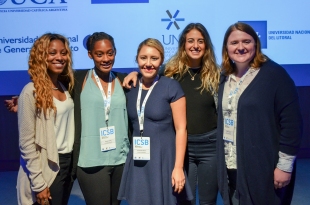 Even at an exclusively dedicated conference on Sustainable Development and Small Entrepreneurs, organized by the International Academy for Small/Medium Business, this year at Buenos Aires, Argentina, (June 29-July 1), one could not escape the doctrine of “economies of scale” preached by Milton Friedman, the grand promoter of free market economic theory. Unfettered free market, which unfolds itself into “big is better,” has taken a deep hold in the subconscious of entrepreneurs of all scale, and is characterized as the marker of success. Scaled up enterprises necessarily turn their focus exclusively on profit margin at all costs, as the gluttony of invested stakeholders drives the appetite. The reckless use of resources, whether natural or human, has nakedly demonstrated the destruction it causes to the entire ecology.
Even at an exclusively dedicated conference on Sustainable Development and Small Entrepreneurs, organized by the International Academy for Small/Medium Business, this year at Buenos Aires, Argentina, (June 29-July 1), one could not escape the doctrine of “economies of scale” preached by Milton Friedman, the grand promoter of free market economic theory. Unfettered free market, which unfolds itself into “big is better,” has taken a deep hold in the subconscious of entrepreneurs of all scale, and is characterized as the marker of success. Scaled up enterprises necessarily turn their focus exclusively on profit margin at all costs, as the gluttony of invested stakeholders drives the appetite. The reckless use of resources, whether natural or human, has nakedly demonstrated the destruction it causes to the entire ecology.
The unassuming British economist (born in Germany) E.F. Schumacher was prescient when he published his collection of essays under the title of Small is Beautiful: Economics as if People Mattered (1974) pointing to the value of small business to promote sustainable development. But, as he did not have any political god-fathers to support his ideas, he was overshadowed by more ambitious and self-aggrandizing economists. Schumacher writes ”…that economic growth, which viewed from the point of view of economics, physics, chemistry, and technology, has no discernable limit must necessary run into decisive bottlenecks when viewed from the point of view of the environmental sciences. An attitude to life which seeks fulfillment in the single-minded pursuit of wealth – in short, materialism – does not fit into this world, because it contains within itself no limiting principle, while the environment in which it is placed is strictly limited” (Chapter 2, Peace and Permanence). This common sense reality somehow escaped and continues to escape the ivory tower economists. William Easterly, author of The Tyranny of Experts (2013) writes: “the conventional approach to economic development, to making poor countries rich, is based on a technocratic illusion: the belief that poverty is purely technical problem amenable to such technical solutions as fertilizers, antibiotics, or nutritional supplements.” The prevailing understanding of what progress is and how to achieve it is at the core of the conundrum of sustainable development. Schumacher makes an important point: “The conventional wisdom of what is now taught as economics bypasses the poor, the very people for whom development is really needed. The economics of giantism and automation is a leftover of nineteenth-century conditions and nineteenth-century thinking and it is totally incapable of solving any of the real problems of today. An entirely new system of thought is needed, a system based on attention to people, and not primarily attention to goods—(the goods will look after themselves!). It could be summed up in the phrase, “production by the masses, rather than mass production.” (Chapter 5, A Question of Size).
Sustainable development necessarily calls for small and medium size commerce where trust in people, as economic value, is almost tangible, who are central stakeholders and beneficiaries. The notion of sustainability is organic to the place and all its elements, people, geography, topography, climate, local history, customs and way of thinking. What is it we want to sustain while undertaking development? And development from what to what? The challenge is: how to locate sustainable development in a glocalizedeconomy? Sustainability necessitates valuing all the components of the development process, which a small or medium sized entrepreneur is well suited to do. Schumacher’s call for Small is Beautiful must be renewed with great vigor as an urgent call before our ecology falls victim to the whims and vagaries of the unfettered free market.
The annual conference was held by International Academy for Small Business at Buenos Aires, Argentina, this past June, brought together a group of university students from many countries beaming with philanthropic spirit; eager entrepreneurs wanting to make the lives of all better in an economy and in an ecology that is sustainable. These students did not need convincing that sustainable development is the only reasonable option for 7.5 billion, and growing, people to live a decent life dignified of human beings. They are believers in doing good for the humanity.
Two interesting projects from two St. John’s University students are worth mentioning. Lorena Brothers, a farmer at heart, visited Cuba a few times to study its agricultural system. She was intrigued by the fact that Cuba’s economic hardships were enormous, yet they did not have famine as one notes in a few African countries. Obviously there was not enough food, yet there was no famine. She learned that the Cubans under duress of economic hardships have developed unique ways of farming to great success. She developed a sustainable agricultural project, by incorporating the techniques Cubans have developed and mastered during the long economic war hoisted on them. InCuba Empresas in Havana, Cuba, has shown interest in implementing that project.
The other project addressed the issue of sustainable energy and women entrepreneurship. Leah Victorino, a diehard entrepreneur and owner of small business Empowered Solar, developed a proposal to take her business to the villages in Panama, where there is no electricity, and make solar energy available to them via microloans; the important feature of this proposal is that the women in the village will be “franchisees” of this project. So far, a well-established microloan organization has shown interest in supporting this project in Panama.
The ingenuity and passion of our student-entrepreneurs, Alexis Dursunyan, Kiah Lashley, Alexa Shuck, Tiffany Eason, Helene Dyabanza Peterson, Alana Broomfield, Lauren Euell and Lorena and Leah, were inspiring and enthused with hope that humanity continues to believe that the millennials are caring, intelligent, compassionate and will be good stewards of our “common home” (Pope Francis).



